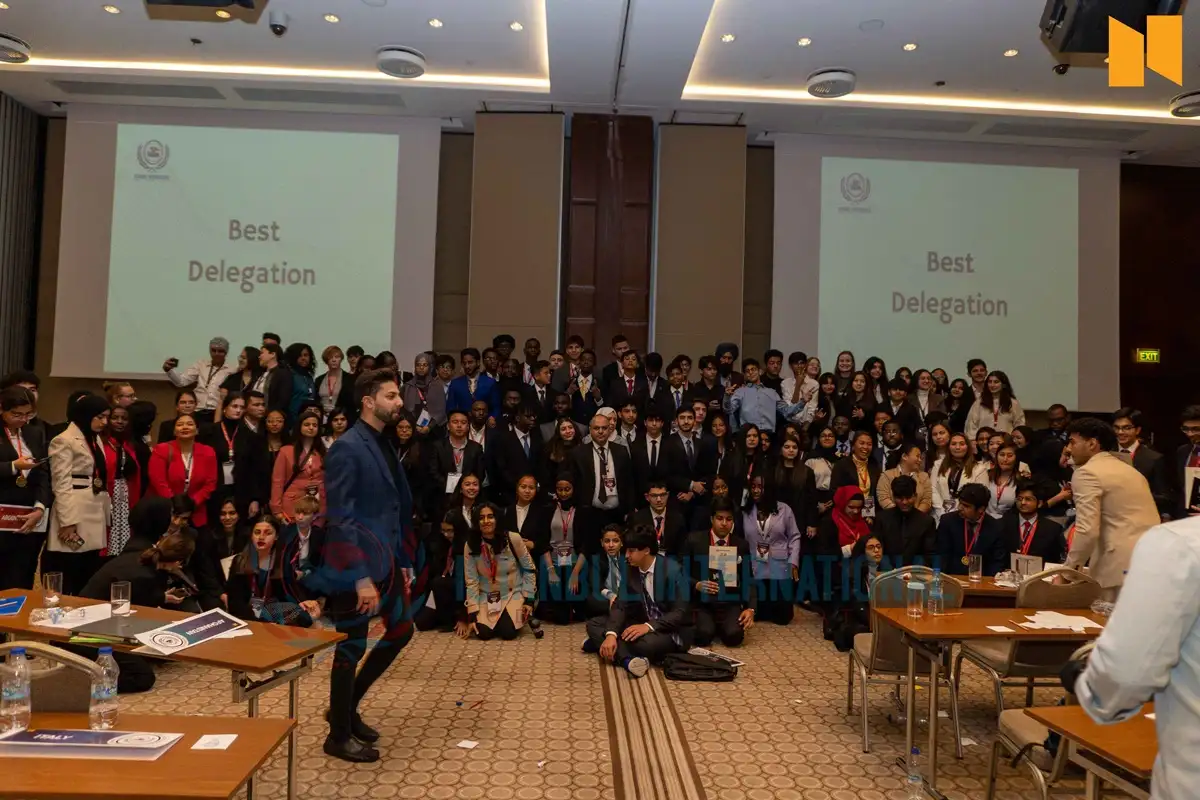
How Can Visionary Leaders Positively Impact The World?

Change is hard to implement, whether it’s a small adjustment to behavior or a major overhaul of the social structure. There are leaders who stand out as lights of progress among those who only think about change and those whose endeavors are unsuccessful. Not only do these people see a different world, but they also have the will to make their vision a reality.
Although the process of change is difficult, it is not impossible to complete. Before effectively altering businesses or society, resilient leaders must overcome a multitude of obstacles. Despite its frightening nature, this technique is very doable. It is crucial to develop certain qualities if one wants to be a change agent. In this piece, we examine the prerequisites for revolutionary leadership and the critical traits that can lead to effective leadership.
Nine Methodical Steps for Successful Change Leadership
Many want to bring about significant change, but they frequently don’t have a plan. The following are nine tactical actions that prospective change agents ought to think about:
Determine the Issue: Examine the Current Situation
Prior to trying to make changes, comprehend the complexities of the current situation. This entails assessing existing systems—whether they be related to politics or the dynamics of the workplace—critically in order to identify areas that need to change.
Accept the Courage to Go Against the Grain
It takes guts to start a change, especially when it comes to deeply held conventions and beliefs. Since real change frequently necessitates forging new paths, leaders must be willing to challenge the status quo without looking for widespread approval.
Create a Harmonious Team
Historical changes were rarely the result of leaders working alone; instead, they required a committed group of people. Put together a team that is committed to your goals and perseveres in the face of difficulty. Put quality before quantity and build a workforce that is dedicated to its work.
Create a Detailed Plan with No Room for Interpretation
A carefully considered plan is essential. Share your vision with the team and explain why you are questioning the status quo. Promote involvement to ensure a shared understanding and reduce the likelihood of failure.
Genuineness Is Important: Stay True to Who You Are
A transparent leader breaks the feeling of unbeatable. Leaders that show empathy and admit their feelings build closer bonds with their team. Being real builds relationships and creates a space where people feel heard and seen.
Honor minor victories and keep moving forward
Even modest but steady advancement is reason for joy. It is imperative for leaders to underscore the importance of every accomplishment while fostering an optimistic outlook. Sustaining change requires maintaining momentum.
Encourage Diversity and Inclusivity
Different viewpoints improve problem-solving skills and promote a thorough comprehension of societal issues. It is recommended that leaders form teams with members from diverse backgrounds in order to promote inclusivity and guarantee a comprehensive approach to change.
When to Disseminate Information Strategically
Information is received differently depending on how it is presented. It is imperative for leaders to strategically distribute information, revealing specifics bit by little. A more seamless integration of the suggested modifications is ensured by starting with personal relationships and then moving on to contextual information.
Adaptability: Change to Keep Up with the Times
Being flexible is essential for leaders. Throughout the transformative process, leaders that are flexible in their approach are more likely to remain effective, particularly when confronted with unforeseen problems.
Three Different Ways to Transform Your Leadership
Different forms of leadership transformation exist, and each one improves the world in a different way:
Modification by Management
Efficient supervisors optimize processes, guaranteeing that assignments are finished on schedule. They reduce obstacles and maximize resources to foster an environment where teams may flourish.
Metamorphosis with Coaching
Coaches are essential in bringing about change because they work closely with individuals, offer advice, and inspire groups of people to overcome obstacles. They have the ability to encourage and inspire others.
Leadership as a Transformational Force
Real transformational leadership entails really enacting change as opposed to just imagining it. This revolutionary method is best exemplified by leaders who create teams, inspire belief in their mission, and overcome obstacles.
Five Ways That Leaders Change the World for the Better
Regardless of their unique transformative style, leaders support constructive global change in a number of ways.
Respecting Each Individual
Leaders combat dehumanization by highlighting each person’s inherent worth. They promote equality and a sense of worthiness by fighting for the rights of minorities.
Bringing Hope during Hard Times
Even in the midst of hardship, leaders instill hope, averting disenchantment during trying times. Their deeds or words inspire self-assurance and motivate people to keep going.
Putting Conventional Norms to the Test
Leaders have the ability to subvert ingrained beliefs and conventions. As past revolutions have shown, they bring about long-lasting change, whether by eloquence or strategic coercion.
Promoting Self-Empowerment
Motivational leaders give people the tools and guidance they need to overcome their circumstances. Their impact goes beyond inspiration, providing real opportunities for personal development.
Giving Real Change Priority over Utopian Dreams
Successful leaders concentrate on attainable, realistic goals while acknowledging the complexity of the world around them. They celebrate small achievements and place more value on purposeful deeds than lofty declarations.
Why Personal Development Comes Before Global Development
Leaders need to reflect and make good adjustments within themselves before they can hope to impact the world. The following are important things to remember:
Examine Your Vision
Leaders need to understand the reasons behind their goals and establish a personal connection with their vision. Convincing others to believe in the vision requires unwavering belief in it.
Building Courage Bit by Bit
Small steps are the way that courage is cultivated. By progressively taking on challenges—such as public speaking, negotiating, or defying expectations—leaders can conquer their concerns.
Uniformity in Word and Deed
Leaders need to be consistent in both their words and deeds. Being genuine is crucial because followers may spot dishonesty and lose faith in you.
Accept Responsibility
Since they are human, effective leaders accept responsibility for their actions. Acknowledging errors with humility guarantees ongoing personal development.
Develop Patience and Humility
In leadership positions, there is a great temptation to become conceited. Relationships are strengthened and treated with greater respect by leaders who value humility and support dissent.
Handling the Crisis of Global Leadership
There is a leadership dilemma in the modern world, as seen by the high number of resignations and growing indifference to morality. There are several reasons behind this crisis:
Final Goal Obsession
Leaders that put results above everything else violate moral principles and straddle moral divides in the sake of achieving their goals.
Employee Disposable Treatment
When workers are viewed as disposable, their value is diminished and their confidence is undermined. Employers who follow such tactics run the danger of creating a workforce that is disengaged.
Ego and Arrogance in Decision-Making Regardless of their field, egotistical leaders frequently treat people badly. Being ‘holier than thou’ weakens trust and makes one less relatable.
The intricacy of global issues
Leaders face a variety of difficulties, such as the poverty and climate problems. The enormity of these responsibilities can make leaders feel less confident.
Inadequate instruction and direction
People in leadership roles frequently lack formal training, which leaves them unprepared for the complexity of organizational difficulties.
The Impact of Neotericans on Global Leadership Transformation
Neoterican provides a revolutionary platform through its Neoteric Summit to address the leadership challenge and develop future leaders. Neoterican, who draws inspiration from a variety of disciplines, such as athletics and the arts, promotes a comprehensive strategy for leadership development.
Conferences held in well-known cities like Dubai, New York, or Istanbul offer practical instruction together with academic knowledge. Participants master diplomacy and public speaking, gaining abilities necessary for successful leadership. The Neoterican community connects people all around the world and encourages cooperation among those who share similar values on a common path of change.
In conclusion, it is difficult to bring about change in a society whose customs and conventions dictate behavior. Those who take on this challenge, though, have the opportunity to make history. People can become agents of positive change by adopting a daring vision and developing unshakeable courage. Self-analysis and personal development are the first steps in the transformational process. Neoterican is a ray of hope in the face of unparalleled problems facing the global leadership scene, thanks to its creative approach to leadership development. Sign up for the Neoteric Summit to begin your transforming journey and learn the road to exceptional leadership.
Q&As
How Can a Leader Influence Society Effectively?
Effective leaders must be included if society is to function successfully. They produce observable social and economic advantages by bringing happiness, inclusion, and confidence.
What Benefits Can Systems Leadership Bring to the World?
Systemic issues call for an all-encompassing strategy. The likelihood of success is increased by including components like shared goal identification, stakeholder participation, regular communication, accountability, and ongoing review.

